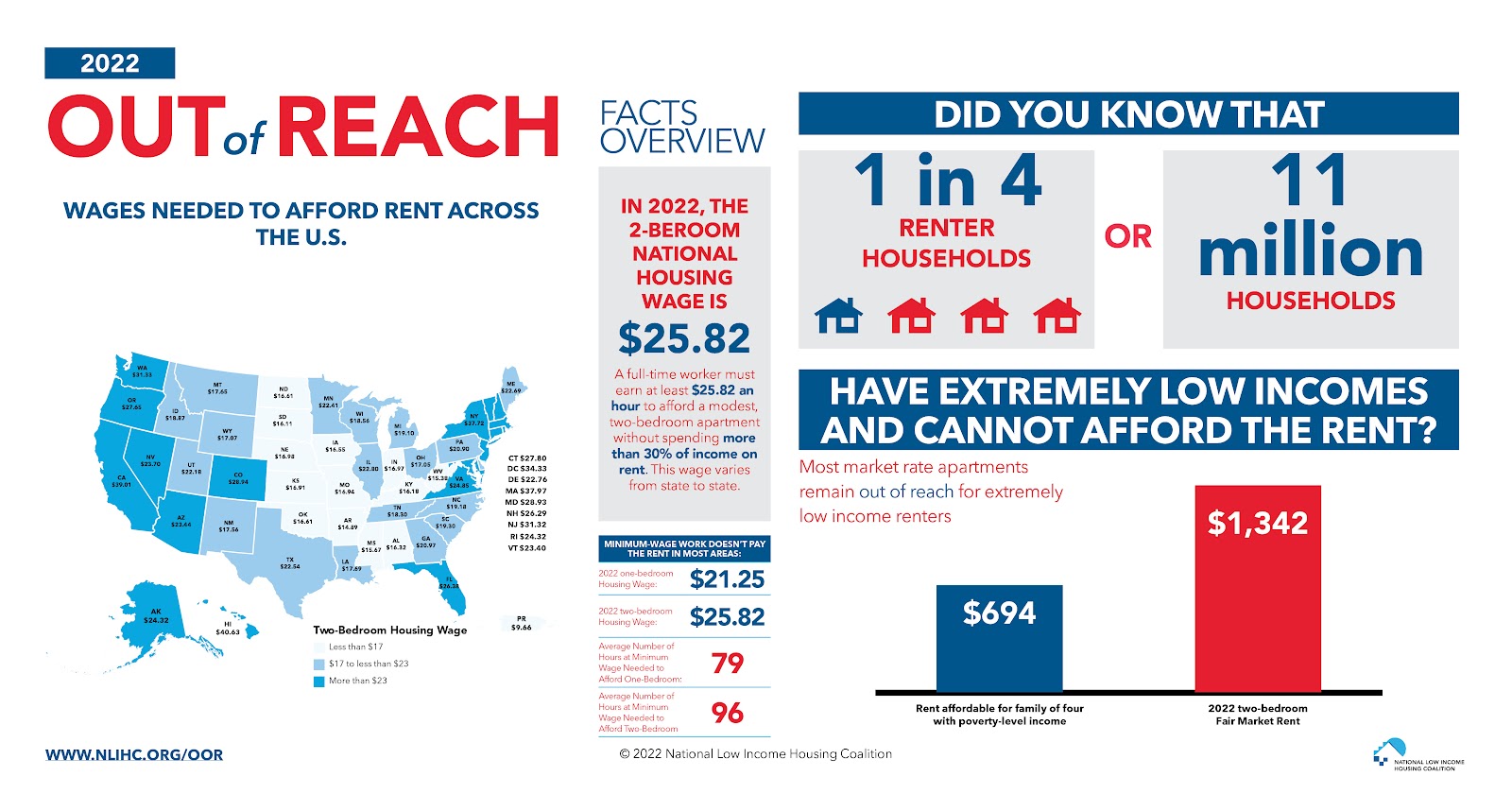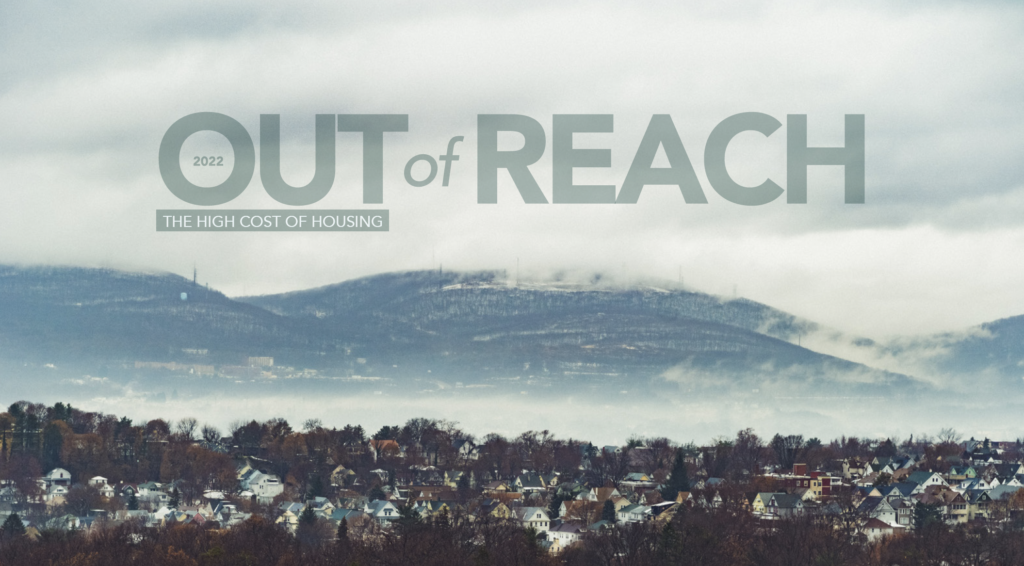
On July 28, the National Low Income Housing Coalition (NLIHC) released Out of Reach: The High Cost of Housing 2022. The report compares rents and wages nationally and in every state, country, and metropolitan area in the United States. The annual Out of Reach report shows the degree to which workers throughout the U.S. are struggling to afford their homes. The report compares both average renter wages and prevailing minimum wages with the “Housing Wage” needed to afford modest rental apartments throughout the country.
This year’s report is released amid record-high inflation and rising rental costs. These rent increases are affecting tenants nationwide, with median rents for two-bedroom apartments increasing nearly 18% between the first quarter of 2021 and the first quarter of 2022. At the same time, costs for necessities like food and transportation have also skyrocketed, leaving low-income renters with increasingly tighter budgets. With inflation breaking a 40-year record in 2022, many renters have had to make difficult decisions about their budget, sacrificing childcare, medical care, and food to maintain housing.

Here in North Carolina, in order to afford a modest, two-bedroom apartment at fair market rent, $997 for a two-bedroom apartment, full-time workers need to earn $19.18 per hour. This is NC’s 2022 Housing Wage, while the state’s minimum wage is only $7.25 per hour.
Across the country, a renter needs to earn $25.82 per hour to afford a modest two-bedroom rental home without spending more than 30% of their income on housing costs, or $21.25 per hour to afford a one-bedroom home. While the Housing Wage varies by state and metropolitan area, low-wage workers everywhere struggle to afford their housing.
In no state, even those where the minimum wage has been set above the federal standard of $7.25, can a minimum-wage renter working a 40-hour work week afford a modest two-bedroom rental unit at the average fair market rent. Working at the minimum wage in NC, a wage earner must have 2.6 full-time jobs or work 106 hours per week to afford a modest two-bedroom apartment.
“Decades of chronic underfunding for housing assistance have resulted in a housing-lottery system, where only 25 percent of eligible households receive the housing assistance they need,” said NLIHC President and CEO Diane Yentel. “With rents rising rapidly, homelessness worsening, and millions of families struggling to stay housed, federal investments in expanding proven solutions – like Housing Choice Vouchers, the national Housing Trust Fund, and public housing – are badly needed and long overdue. As a country, we have the data, partnerships, expertise, solutions, and means to end homelessness and housing poverty – we lack only the political will to fund solutions at the scale necessary.”
For additional information, visit: http://www.nlihc.org/oor or Out of Reach 2022: North Carolina.








